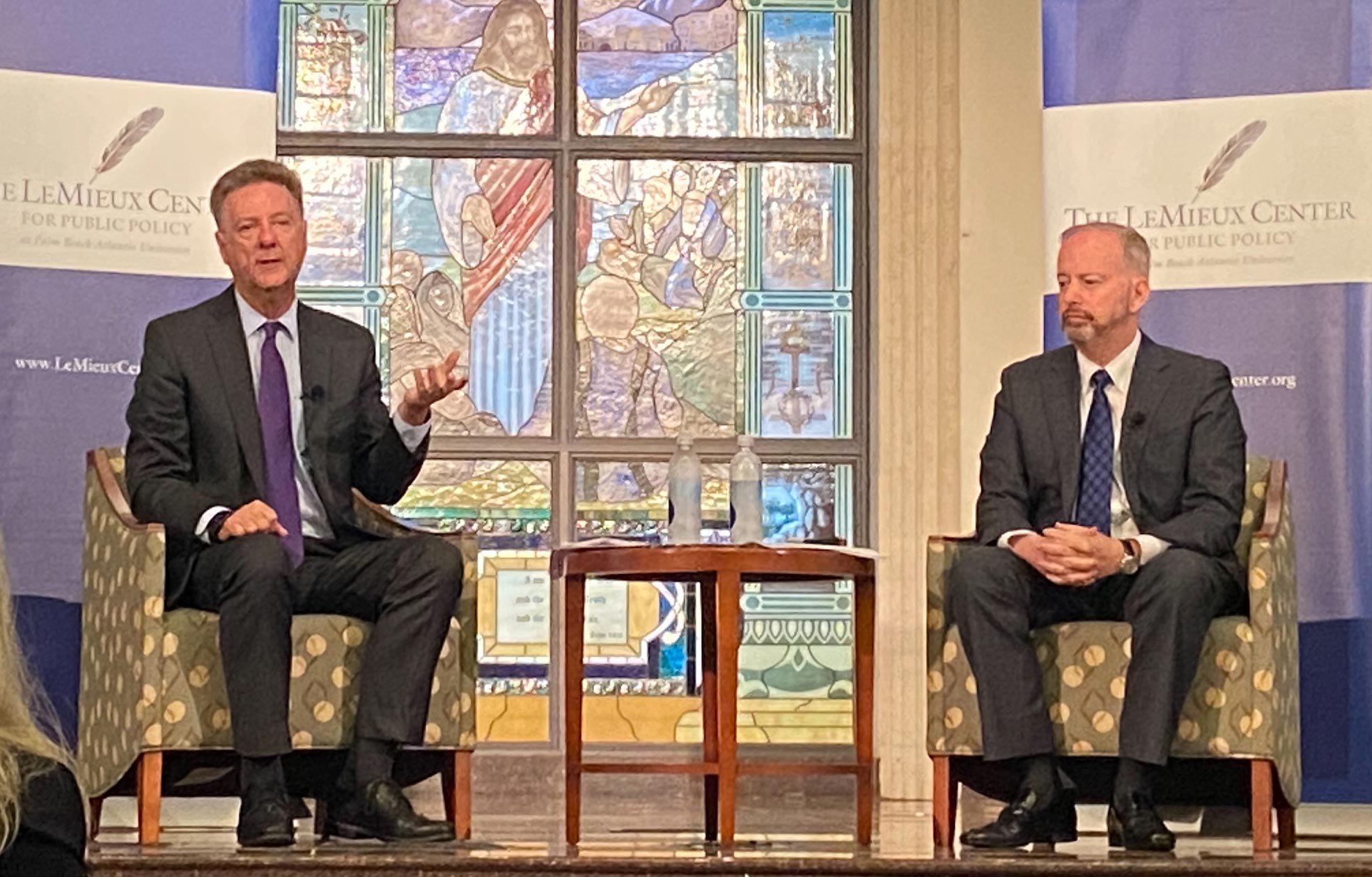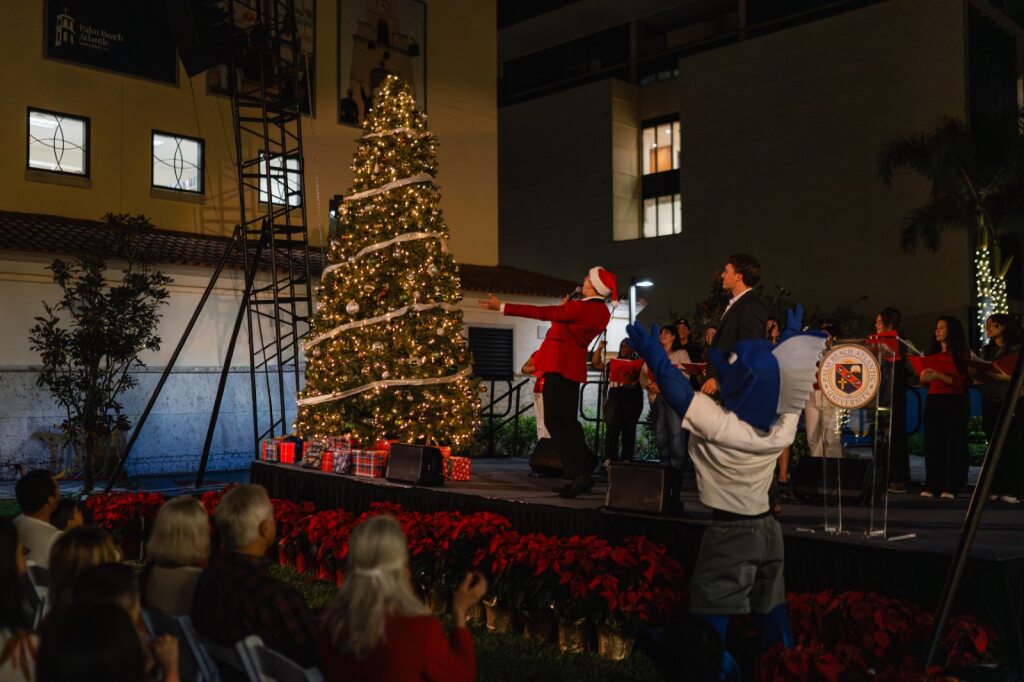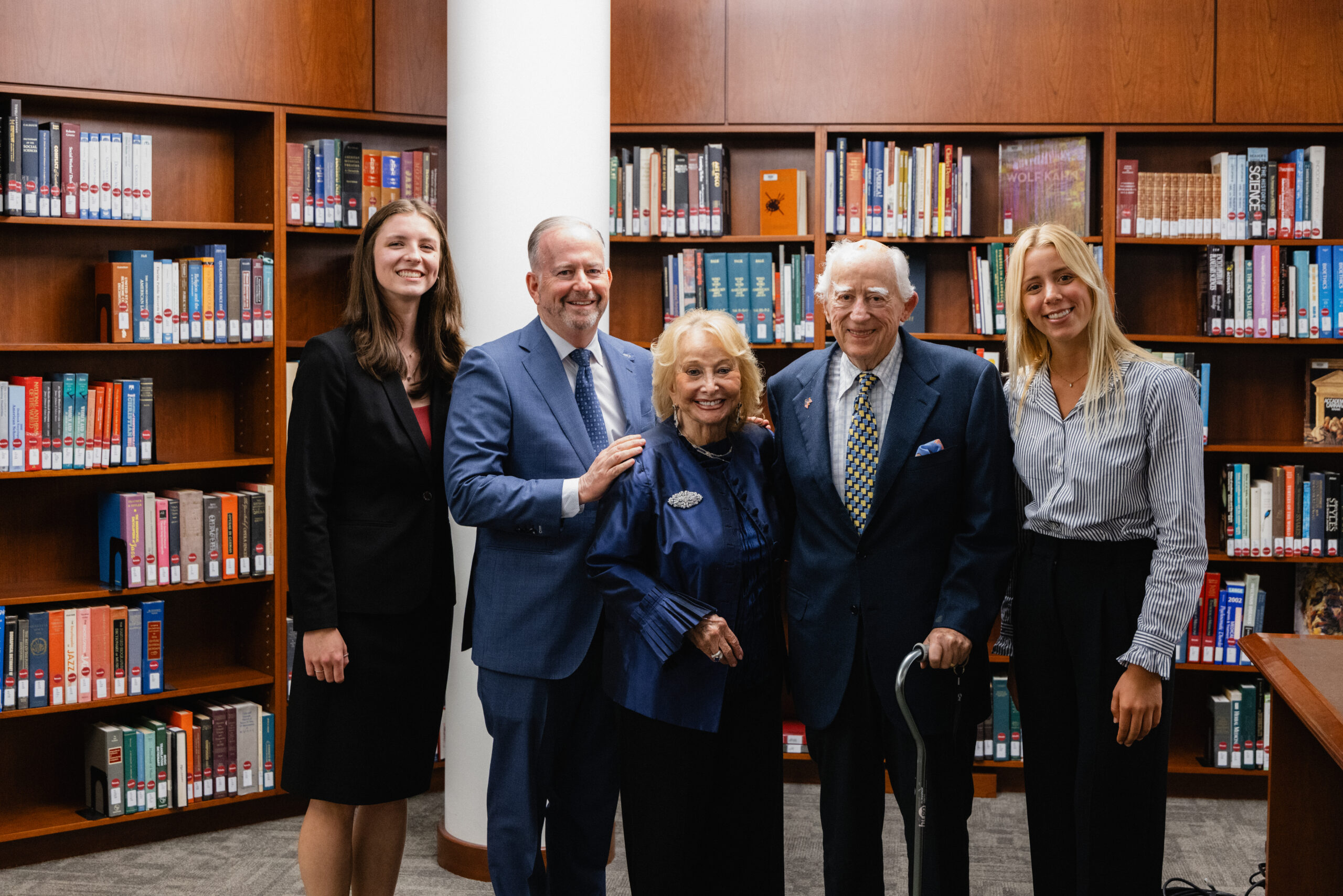LeMieux Center for Public Policy experts opened a forum about the Russian invasion of Ukraine by answering a basic but important question: why Americans should care.
Ukrainians were going about their lives going to work, attending church and shopping for groceries when they were faced with a brutal invasion from a foreign power, said former U.S. Sen. George S. LeMieux.
“They are people who democratically-elected their government,” LeMieux said. “They have been free since the fall of the Soviet Union in 1990.”
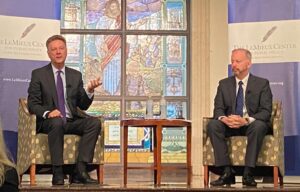
LeMieux and LeMieux Center for Public Policy Executive Director Dr. Robert Lloyd co-hosted a forum Tuesday evening in the DeSantis Family Chapel.
The Soviet Union was a communist state made of 15 Eastern European and Asian countries. Russian President Vladimir Putin’s ultimate goal is to reunify all Russian-speaking countries formerly part of the Soviet Union, LeMieux said.
NATO, the North Atlantic Treaty Organization, was founded after World War II to deter Soviet expansion, LeMieux said. It is an alliance among 30 member countries that hold to the position that “an attack on one is an attack on all.”
Recently, a Russian missile killed 35 people at a military base in western Ukraine where Florida National Guard troops had previously been training Ukrainian soldiers. The base is near Poland.
Both the U.S. and Poland are NATO member states, meaning that if any Americans or Polish soldiers had been hit, the attack would have triggered a response from all 30 NATO member countries.
“We don’t want to be in a world war with Russia, which is a nuclear power,” LeMieux said.
Asked about the potential use of nuclear weapons, Lloyd said Putin — unlike former Nazi leader Adolf Hitler — is a rational actor who will respond to incentives. Diplomatic backchannels can provide an opportunity for Putin to save face.
“If he was backed against a corner in Ukraine, would he resort to nuclear weapons?” Lloyd asked. “I don’t think so.”
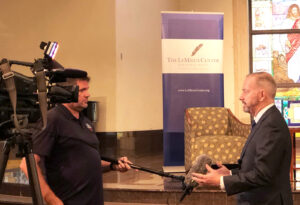
Ukraine is a country of 40 million people, some of whom were the fiercest fighters for the Soviet Union, LeMieux said. It is a big country with well-funded, well-armed forces, he said.
Conversely, Russian morale and supplies have been very weak, Lloyd added, noting reported instances of Russian soldiers who defected.
Putin may have been watching nervously as Ukraine’s economy and quality of life improved under democratically-elected, charismatic President Volodymyr Zelensky, LeMieux said.
Lloyd cautioned that pro-Ukraine media accounts make it difficult to accurately judge how the war is progressing. Determining the reality on the ground requires closer reading, he said.
Lloyd said he’s never seen such rapid isolation of a country economically, socially and politically. Visa and MasterCard have suspended their operations in Russia, he noted.
LeMieux said, “Their economy has been imploding. A weakening power is a dangerous power.” Meanwhile, “the West is alert again. The West is strong again.”
Merely three weeks into the war that Russia started, the once-formidable Russian military is asking for military help from China, LeMieux said. Although Russia and China have similar enemies, “Russia is nothing they [the Chinese] desire to be or be aligned with,” LeMieux said.
Siding with Russia in Putin’s imperial quest would bring shame to China, which takes an anti-imperialist position, Lloyd said. The U.S. is a major trade partner with China and could isolate China economically, he said.
Supply chain issues during COVID-19 caused a push to return drug and pharmaceutical manufacturing to the U.S. Closing the door to trade with China in the U.S. and Latin America could further bolster U.S. manufacturing, LeMieux said.
“It could be a tremendous resurgence for the U.S.,” LeMieux said.
Nodding to the international development students in the room, Lloyd pointed out that there will be much destruction in Ukraine and Russia after the war’s end. The countries will need help rebuilding their schools, roads and other infrastructure.
“That is a monumental task that we haven’t even thought through yet,” Lloyd said.
